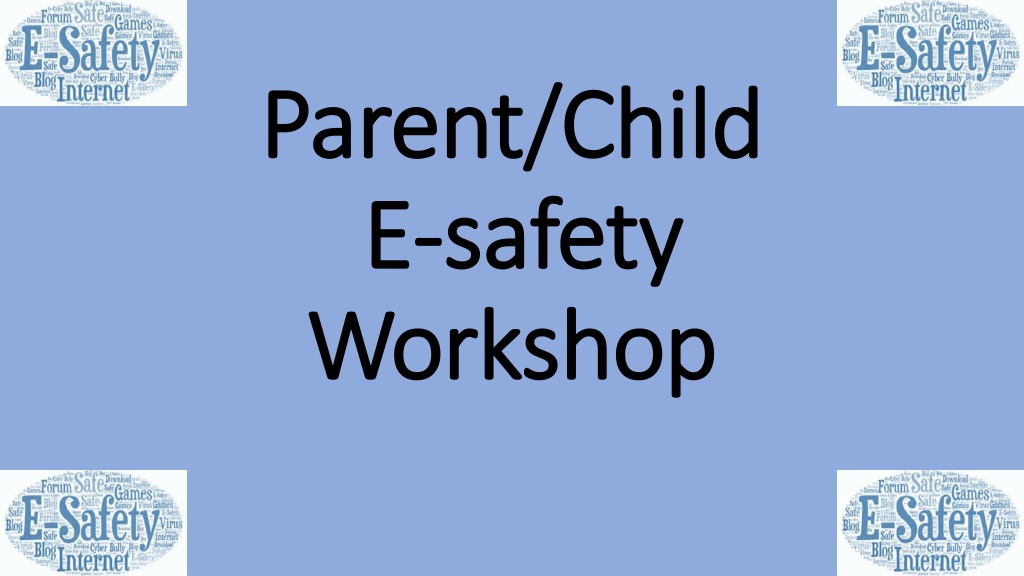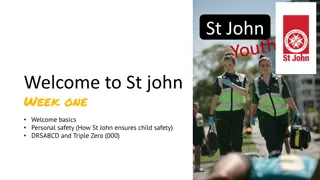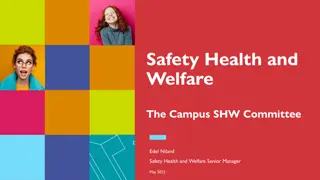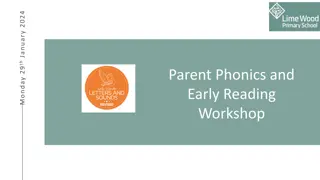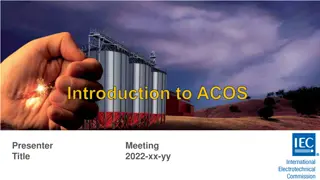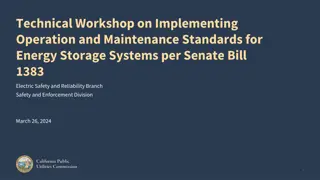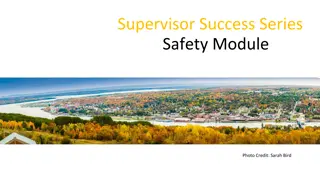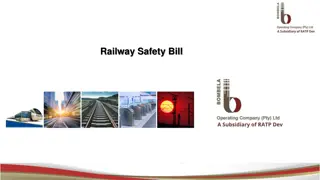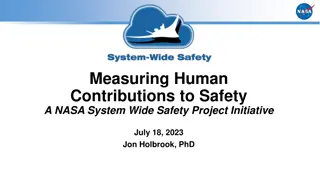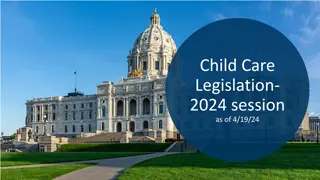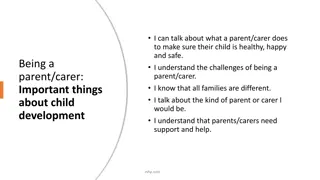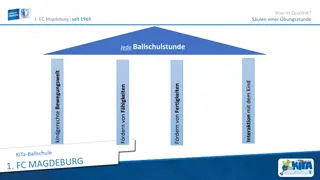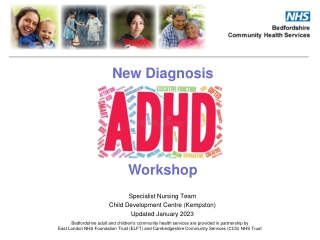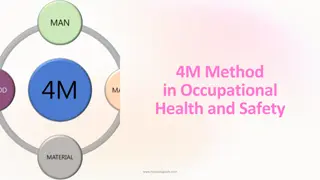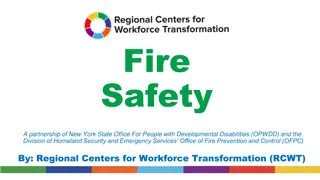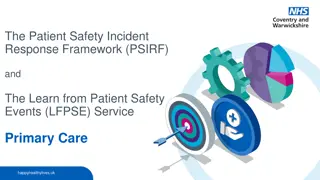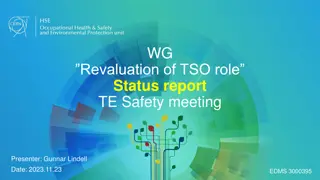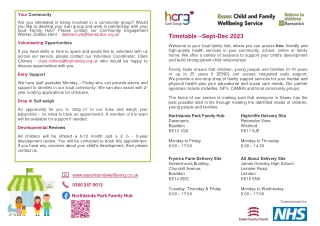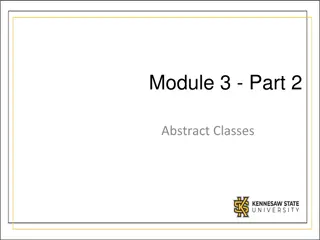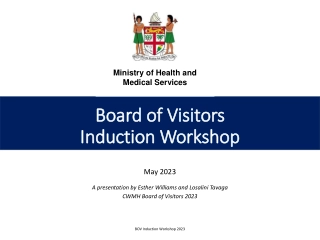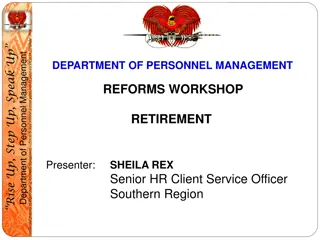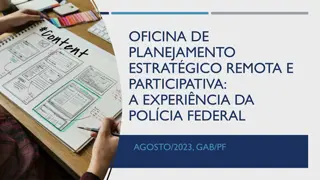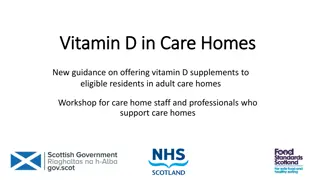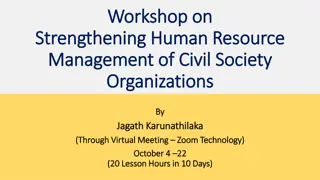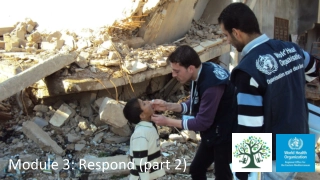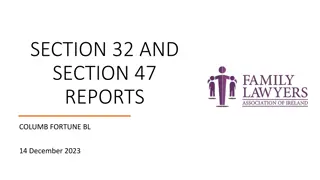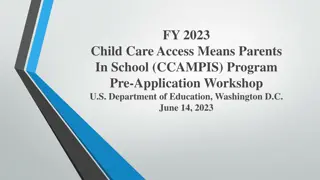Parent/Child E-safety Workshop
Explore the potential risks children face online, such as cyberbullying, inappropriate content, and loss of privacy. Learn about the importance of monitoring social media use, legal age restrictions, and ways to protect your child while navigating the digital world.
Download Presentation
Please find below an Image/Link to download the presentation.
The content on the website is provided AS IS for your information and personal use only. It may not be sold, licensed, or shared on other websites without obtaining consent from the author. Download presentation by click this link. If you encounter any issues during the download, it is possible that the publisher has removed the file from their server.
Presentation Transcript
Parent/Child Parent/Child E E- -safety safety Workshop Workshop
Aims of the Session Aims of the Session To reflect on the potential risks of internet use for your Children. E-safety in our School. Know what to do if your child encounters problems online. Q&A
D Do you have an idea.. o you have an idea .. 1. What Social Media your Child uses? 2. What the legal age is to use Social Media?
13/16 Years of Age Nearly all social media services require users to be at least 13 years of age to access and use their services. This includes Facebook, Snapchat, Twitter, Instagram and Tik Tok! This is because researchers believe students are mature enough to handle social media at age 13. The minimum age of use for WhatsApp is 16 years old. It had previously dropped to 13 years old but in April 2018 returned to 16, as a response to data-protection legislation. Like many age restrictions on social media apps, some children may choose ignore this and sign up for WhatsApp when they're younger.
Children Online Potential Risks Cyber bullying Inappropriate websites Losing control over pictures and video / Giving out too much information online Contact: children can be contacted by bullies or people who groom or seek to abuse them Content: age-inappropriate or unreliable content can be available to children Conduct: children may be at risk because of their own behaviour, for example, by sharing too much information
What are the implications? Many of these sites use targeted advertising and therefore your child could be exposed to adverts of a sexual, or other inappropriate nature, depending on the age they stated when they registered. They may have lied about their age to get an account, making them appear older than they are, increasing this risk. Young people may accept friend requests from people they don t know in real life which could increase the risk of inappropriate contact or behaviour. The general rule is, if they aren t friends in real life, they shouldn t be friends online.
What are the implications? Language, games, groups and content posted or shared on social media is NOT moderated, and therefore can be offensive, illegal or unsuitable for young people. Photographs shared by users are NOT moderated and therefore young people could be exposed to inappropriate images or even post their own. Underage users might be less likely to keep their identities private and lying about their age can expose them to further risks regarding privacy settings and options. Social media sites can be exploited by dangerous people. Social media sites cannot and do not verify its members, therefore, it is important to remember that if your son/daughter can lie about who they are online, so can anyone else.
Key point: Although we cannot govern matters occurring out of school hours, which is parental responsibility, we will: take action (such as reporting under age profiles) if a problem comes to our attention that involves the safety or wellbeing of any of our pupils report the use of inappropriate images by young people to the police, as this is a legal matter. This also refers to inappropriate text messages.
The Law: Possessing images Sexting photos or videos on your phone or computer If you are under the age of 18, the law sees you as a child. Therefore, if you have any indecent images or videos of somebody who is under 18, including yourself, you would technically be in possession of an indecent image of a child. This is an offence under the Protection of Children Act 1978 and the Criminal Justice Act 1988.
The Law: Sending and receiving Images Sending and receiving photos or videos If your child is under 18 and they send, upload or forward indecent images or videos to friends or boyfriends/girlfriends, this would also be breaking the law, even if they are photos of themselves ( selfies ). If they are in possession of images of a sexual nature of someone under 18 (even if it is your friend or boy/girl friend), they are committing an offence. Offenders can be placed on the sex offenders register and can be given a prison sentence. This is also the case if you have kept or printed out an image sent to you by a friend.
Advice: Should you decide to allow your child to have an online profile we strongly advise you: Check their profile is set to private and that only their friends can see information they post. Monitor your child s use and talk to them about safe and appropriate online behaviour such as not sharing personal information and not posting or messaging offensive/inappropriate messages or photos. Monitor your child s use of language and how they communicate to other people, ensuring profanity is discouraged. Have a look at advice for parents on the social media sites. Set up your own profiles so you understand how the site works and ask them to have you as their friend on their profile so you know what they are posting online.
Advice: Make sure your son/daughter understand the following rules: Always keep your profile private. Never accept friend you do not know in real life. Never post anything which could reveal your identity including photographs wearing school uniform where possible. Never post anything you wouldn t want your parents or teachers to see. Never agree to meet somebody you only know online without telling a trusted adult. Always tell someone if you feel threatened or someone upsets you.
Hendon School Support We will support through lessons provided at school, assemblies, guest speakers and PSHE lessons. We do our best to provide our children with the awareness and knowledge they need in order to recognise and avoid dangerous, destructive, or unlawful behaviour and to respond appropriately.
Useful Links https://www.ceop.police.uk/Safety- Centre/https://www.internetmatters.org/schools-esafety/parent-online- support-pack-teachers/ https://www.thinkuknow.co.uk/parents/ http://www.saferinternet.org.uk/advice-and-resources/parents- and-carers http://www.childnet.com/parents-and-carers https://www.nspcc.org.uk/preventing-abuse/keeping-children- safe/online-safety/ http://www.kidsmart.org.uk/parents http://www.netsmartz.org/Parents
What to do if your child sees inappropriate material online? Don t overreact if your child tells you about something they have seen. You might feel shocked and angry but by dealing with it calmly your child will know they can turn to you again. Keep records of abusive messaging. Report abusive or inappropriate behaviour to the website and if serious, to the police.
